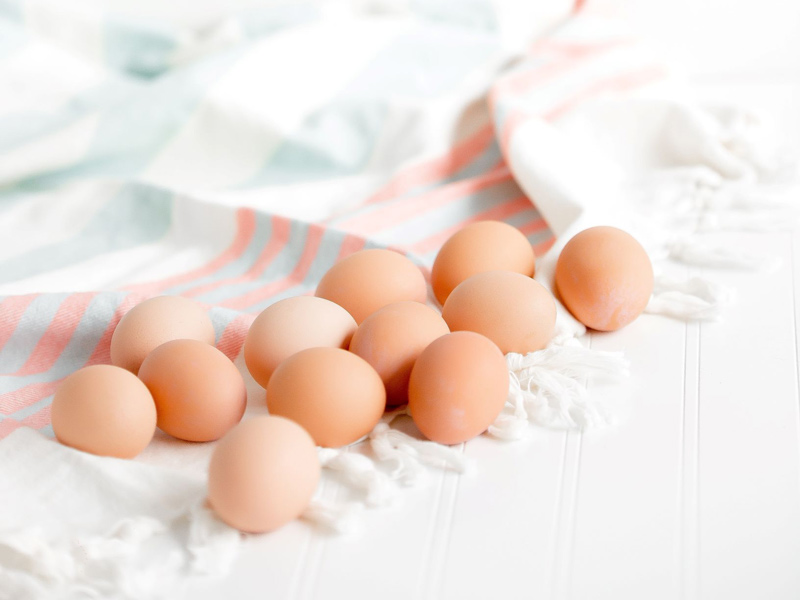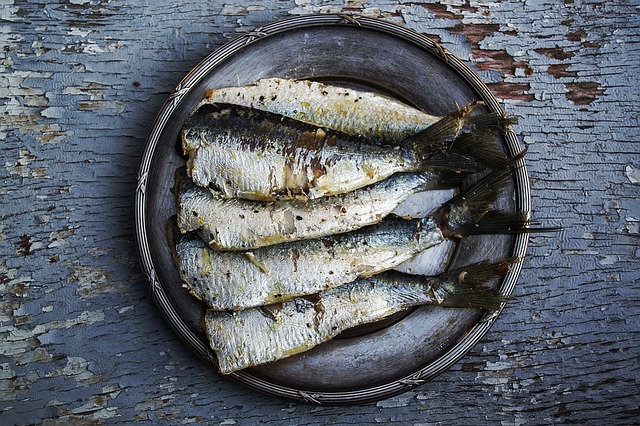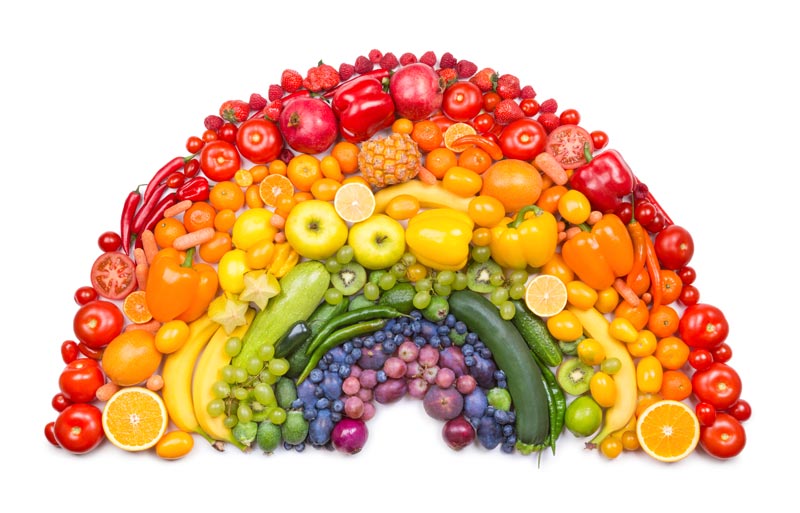
As a parent, it can be so difficult to know how to help your child when they are feeling anxious. I’m talking from personal experience here, with one of my own children. Plus so many parents are telling me right now that during the COVID pandemic their children seem to be experiencing more anxiety, especially as the return to school is imminent.
When the irrational fear or worry sets in, it’s difficult to know how to support your child, except the natural instinct to give lots of cuddles (which of course can help no end). Anxiety can affect children of all ages, and there are a number of ways you can help with the right food, nutrition and lifestyle strategies, to help them better cope with the everyday challenges they face.
Today I want to share with you some of these strategies, which may help to provide a sense of calm and address potential underlying biochemical imbalances which may be exacerbating their anxiety. We’re going to look at the following in more detail:
- Managing your child’s cortisol
- Nutrients to support relaxation and help brain output
- The importance of good gut health
- Mindfulness
But before we do, let’s look at why our kids can experience anxiety in the first place.
Why are so many kids experiencing anxiety?
Most children will experience some form of anxiety or worry throughout their childhood – it’s a natural reaction to a stressful or worrying situation. Whether it’s exam pressure, worry about a new school, difficulty with friends or a nightmare they’ve had which is playing on their mind.
However, anxiety can start to impact their daily life when it is ongoing or especially acute – and this vicious cycle of worry can start to impact their mood, sleep, concentration and social life. It’s one of the most stressful things to witness as a parent (believe me I know), and as anxiety develops it can manifest throughout a child’s body and may affect their tummy and digestive system, cause headaches, poor sleep patterns and overall affect their confidence.
There are many reasons why a child can experience anxiety, and the latest figures show that 8% of children experience some form of emotional problems (including anxiety and depression), rising to 22% in the 17 to 19 year old bracket for girls and 8% for boys. Evidence suggests that these figures are on the rise from 2020 onwards, following the impact of school closures and COVID.
Whilst anxiety is a multi-faceted condition with many factors triggering and driving these feelings, an under-nourished body and brain can certainly exacerbate symptoms and our children’s ability to manage stressful situations.
Here are some potential factors that you can start to explore if your child experiences anxiety. (Do remember that every child is unique and if your child is taking any form of medication or experiencing ongoing anxiety, do also speak to your GP before adding in any supplements).
Manage the Fight or Flight Feelings – understanding the cortisol response and blood sugar control
When we perceive that our bodies are under threat, we release stress hormones. One of these key “fight or flight” hormones is cortisol, which is released from our adrenal glands and helps to prime our bodies ready for an attack – meaning we’re able to fight or run. Our bodies don’t distinguish from when we were cave people expecting an attack from a bear. We still react in the same way to perceived stress in our modern day lives… an exam looming, worry about a new school, negative comments on social media or a row with our parents.
These are things we don’t need to physically fight or run away from, but our body still responds in the same way – cortisol is released which causes our hearts to beat faster, our breathing rate to increase, we can feel shakey or sweaty and experience a rush of adrenaline. These are the feelings we experience when we’re anxious.
So what can we do to help manage this rush of cortisol? Firstly, we can help to prevent unnecessary cortisol release – and this starts with keeping our blood sugar balanced. If we eat too much sugary food or white refined carbs, not enough protein, skip meals or drink sugary drinks, our blood sugar levels become imbalanced. These swings of blood sugar add stress to our bodies, causing further release of stress hormones.
So if our diet is adding to our stress load, it can heighten feelings of anxiety even further.
How to help keep your child’s cortisol under control:
- Choose naturally low sugar drinks – water, very dilute squash and avoid fizzy drinks and caffeinated drinks
- Reduce the amount of caffeine (from coffee, tea, energy drinks and fizzy drinks – did you know diet coke has as much caffeine as a cup of coffee?) – caffeine can also imbalance blood sugar and has been linked to increased anxiety
- Base meals around a handful of protein – this starts from first thing in the morning for breakfast. If your teen is a breakfast skipper, give them a protein shake with some good quality protein such as pea or whey protein powder. I love Pulsin pea protein powders, or Solgar Whey to Go. You can blitz this with a handful of fruit and some milk or nut milk. Or add a handful of nuts to their breakfast cereal or give them a cooked breakfast such as scrambled eggs.
- Make sure snacks and meals contain protein: don’t give just carbs such as pasta for lunch or fruit for. Snack. Add some cheese, nut butter, chicken, ham or nuts.

Nutrients to support a balanced brain…
When it comes to anxiety in your child, there are several key nutrients that may help to support relaxation and balance brain output. These include:
Magnesium:
For older children and teens, magnesium spray is also ideal and you can also add in 200mg of Magnesium citrate or glycinate in the morning and evening as well. In my clinical experience, and also with my own daughter, magnesium is one of the most effective minerals for supporting a feeling of balance and calm.
Also work on adding magnesium in their diet with plenty of dark green leafy vegetables, nuts, seeds, oily fish, bananas, buckwheat, dark cocoa powder and a little dark chocolate, plus blackstrap molasses (check out my flapjack recipe). However, a supplement may also be needed to help support the increased need for magnesium during times of stress.
Vitamin D:
Deficiency of this key nutrient has been linked to an increased risk of mental health issues, including anxiety and depression. This essential vitamin is made primarily from the sun’s action on our skin, which is another key reason for us to spend more time outside. We know from genetic testing (and I can tell you from my own clinical experience) that our absorption of Vitamin D varies dramatically, and some of us have a genetic variant which can block our ability to absorb Vitamin D.
A daily supplement of Vitamin D may be advisable through the winter, especially if your child appears to experience some form of low mood throughout the winter), and include plenty of oily fish in your diet, which is one of our main sources of dietary Vitamin D.
Omega 3 essential fatty acids:
Omega 3 fats are so important for our brain health and are the subject of research trials linked to brain health around the globe. Most of our children don’t eat anywhere near enough oily fish to support the level of omega 3 needed for optimal brain health – if your child never eats fish or any form of seeds – they are likely to be deficient in omega 3 fatty acids.
One tell tale sign is when they have bumpy skin on the backs of their arms or on their face (keratosis pilaris), as well as dry skin, excess thirst and poor hair quality.
Try to include some oily fish 2 to 3 times per week (mackerel, sardines, salmon) and a heaped teaspoon (tablespoon for teenagers) of ground flaxseed every day – this goes really well into yoghurt and smoothies. If your child is not a fish eater and you can’t get them to eat seeds, it might be better to supplement an omega 3 every day.
B Vitamins:
Alongside magnesium, B vitamins are really important for supporting our neurotransmitter balance – the brain chemicals which help to balance our mood and support our resilience to stress. This is especially important if your child is vegan or vegetarian, as meat, fish and eggs are our main food sources of B vitamins. If you’re on a plant based diet, you should be supplementing your child with Vitamin B12 and you can also support other B vitamin intake (as well as iron which is also important for the brain) from dark green leafy vegetables, wholegrains, nuts and seeds.

Good gut health…
More and more is being discovered about the links between our gut health and our brains, and this is especially important for children. The “garden” of healthy organisms in our digestive system needs regular feeding with plenty of brightly coloured vegetables and fruits, so that they can help us to create B vitamins, keep our immune systems balanced and support the health of the gut lining. Our beneficial bacteria also help to make our neurotransmitters, which send important messages around our bodies and to our brains.
You can help to keep your child’s gut bugs happy by eating a rainbow of vegetables and fruit every day. Aim to get them to eat 5 to 7 portions of veg (hide them wherever you can – e.g. grated into spag bol, blitzed into smoothies) and 2 to 3 portions of fruit. Also avoid eating too much sugar, as this can imbalance our gut bacteria.
Favour whole grains (brown pasta, brown rice, quinoa, oats) over white, as these contain more fibre. You can also include fermented foods – and kefir is great for children. This highly fermented type of yoghurt is rich in beneficial bacteria and is perfect for pouring over cereal, adding to smoothies or porridge. It’s available in most supermarkets now, next to the yoghurt aisle.

And don’t forget to breathe…
I’m going to write more on this in the coming months, as mindfulness practice is becoming increasingly important for children. You can demonstrate to your family the importance of taking some time out to be still, deep breathing and avoiding being busy all the time. We’re so good at being human “doings” rather than human “beings” and our children learn so many life skills and habits from us. Here are some tips you can try as a family:
- Teach children about mindfulness and sitting still like a frog.
- Try doing 5 deep belly breaths when your children get into bed to relax bodies and mind.
- Try a meditation app like calm.com or Headspace.
- Spend time outdoors every day – and spend moments taking in all the senses – name 5 things you can see, hear, feel, smell. This helps to ground us in the present.
- Make time just to be together and lay on the floor telling silly jokes.
- Teach them about not feeling the need to be busy all the time and just sitting still and observing nature.
All of these things are great to help manage anxious feelings and support our ability to sleep well, feel more calm and able to manage difficult times in life.
If you have any questions, do drop me a line. And if you’d like to learn more about helping your children eat well for life, I’d love you to check out my online course for parents to help your kids live to 100!